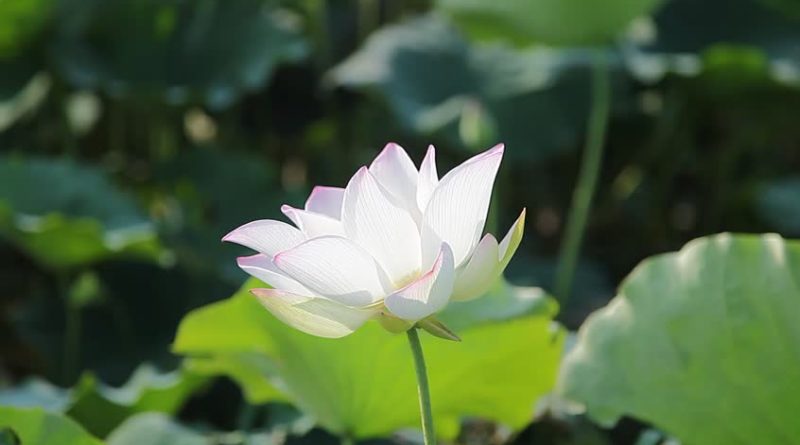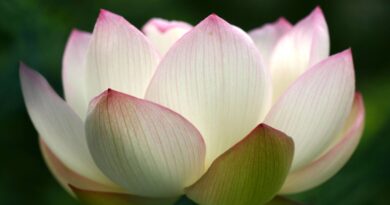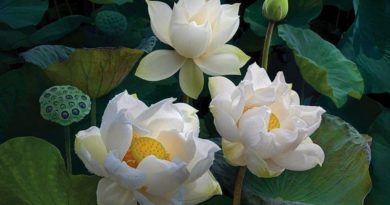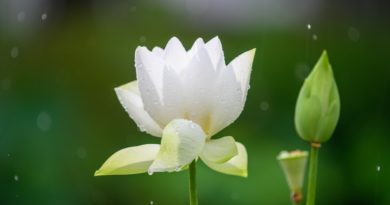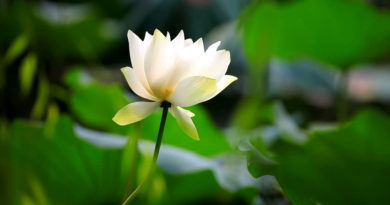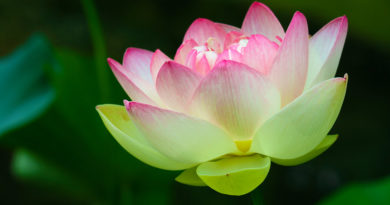Goṭamukhasuttaṃ – To The Brahmin Gotamukha
MAJJHIMA NIKĀYA II
II. 10. 4. Goṭamukhasuttaṃ
(94) To the Brahmin Gotamukha
I heard thus. At one time venerable Udena was dwelling in Khemiya’s mango orchard in Benares. At that time the Brahmin Goṭamukha had arrived in Benares for some purpose. While walking and wandering for exercise came to the mango orchard of Khemiya and saw venerable Udena walking mindfully in the mango orchard and approached him. The Brahmin Goṭamukha exchanged friendly greetings with venerable Udena and while walking beside him said ‘Good recluse, I think there is no rightful going forth, a one with a vision for ending, ‘being’, or a teaching like that.”
When this was said, venerable Udena, stepped out of the chankamana went to his dwelling and sat on the arranged seat. The Brahmin too stopped his exercises, followed venerable Udena, entered his dwelling and stood on a side. Brahmin, there are seats, if you wish, sit.”
“Until venerable Udena took a seat, we would not sit, not that I thought, I will not take a seat without being offered?”
The Brahmin Goṭamukha took a low seat and sat on a side and said, ‘Good recluse, I think there is no rightful going forth, a one with a vision for ending ‘being’, or a teaching like that.”
“Brahmin, if you give me permission to rebuke you, when rebuke is necessary and when anything is not clear, if you question me further. We will have a conversation on this.”
“Good Udena, I grant permission to rebuke me when rebuke is necessary and when anything is not clear I will question, venerable Udena what is the meaning of this. There will be a conversation between us on this.”
“Brahmin, four kinds of persons are evident in the world. What are the four? A certain person tortures his self yoked to it. Another tortures others yoked to it. Another tortures his self and others yoked to it. Another does not torture his self or others, is satisfied, extinguished, cooled and abides in pleasantness like Brahmā. Brahmin, of these four which one pleases you?”
“Good Udena, I’m not pleased with him who tortures his self yoked to it, nor with him who tortures others yoked to it. I’m not pleased with him who tortures his self and others yoked to it. I’m pleased with the person who does not torture his self or others, is satisfied, extinguished, cooled and abides in pleasantness like Brahmā.”
“Brahmin, why are you not pleased with these three persons?”
“Good Udena, this person who tortures his self, is yoked to torturing his self, which desires pleasantness and loathes unpleasantness. Therefore I’m not pleased with this person. This person who tortures others, is yoked to torturing others, who desire pleasantness and loathe unpleasantness. Therefore I’m not pleased with this person. This person who tortures his self and others, is yoked to torturing his self and others that desire pleasantness and loathe unpleasantness. Therefore I’m not pleased with this person. The person who does not torture his self and others, is unyoked, satisfied, extinguished, cooled and abides in pleasantness like Brahmā. Therefore I’m pleased with this person.”
“Brahmin, there are two gatherings. What are the two? One gathering is attached to jewels, ear -rings, sons wives, slaves male and female, fields, wealth and gold and are in search of them. The other gathering is not attached to jewels, ear- rings, sons, wives, slaves male and female, fields, wealth and gold. Giving up these, they go forth, homeless. Brahmin, this person does not torture his self and others, is unyoked, satisfied, extinguished, cooled and abides in pleasantness like Brahmā, here and now. In which kind of gathering do you see this person much? Is it in the gathering that is attached to, and is in search of, jewels, ear rings sons wives slaves male and female, fields, wealth and gold. Or else in the gathering that is not attached to jewels, ear rings, sons wives, slaves, male and female, fields, wealth and gold, has given up these and has gone forth?”
“Good Udena, this person who does not torture his self and others, is unyoked, satisfied, extinguished, cooled and abides in pleasantness like Brahmā, I see in the gathering not attached to jewels, ear rings, sons, wives, slaves male and female, fields, wealth and gold has given up these and gone forth.”
“Brahmin, we know you saying these words,’ Good recluse, I think there is no rightful going forth, a one with a vision for ending, ‘being’, or a teaching like that.”
“Good Udena, indeed those words were spoken carelessly. It now occurs to me, there is a rightful going forth. I believe good Udena is one of them. May those four persons mentioned in short be explained to me in detail.”
“Brahmin, listen I will explain,’ He replied ‘Yes good Udena.”
Then venerable Udena said. ‘Brahmin, a certain one tortures himself, yoked to it. He goes naked, without manners licks the hand, does not accept a greeting or a tarrying. Does not accept what is brought or specially prepared. Does not endure an invitation. Does not accept, from the rim of a pot, when a goat is about the place, across a stick or broom. Does not accept from, two partaking food, a woman bearing child, a woman giving suck, one gone with a man, a defiled woman. Does not accept fish, meat, intoxicating drinks and brewed drinks.
Partakes one morsel from one house, two morsels from two houses, up to seven morsels from seven houses. Is supported on food given by, one woman, two women, up to seven women. Is supported on food given by, one man, two men up to seven men. Is fed in turns like this, for half a month. Eats vegetables and millets, raw rice, Dadulla rice, water plants, husked rice powder, rice foam, flour of oil seeds, grass, cow dung, forest roots and fruits, or is supported on what falls on the way. Wears hemp clothes, coarse clothes, miserable garments, rag clothes, bark clothes, skin clothes, strips of skin, grass clothes, bark clothes, clothes made of planks and of hair, tails and the wings of owls. Is yoked to pulling out hairs of head and beard. Is yoked to standing, rejecting seats Is yoked to sitting or lying on a bed of thorns. Is yoked to descending into water, up to three times by night. Thus he practises various kinds of torture for the body. Bhikkhus, this person tortures himself yoked to it. *1).
Bhikkhus, which person tortures others yoked to it? Bhikkhus, here a certain person is a killer of pigs, goats, birds, a hunter of wild animals, a fisherman, a robber, a highway robber, one who keeps a prison, or engaged in any other vicious activity. This person tortures others yoked to it.
Bhikkhus, who tortures his self and others, yoked to it?A certain king or the head anointed king of warrior, or brahmin or householder clan, builds a new assembly hall. Shaving head and beard, and putting on a rough garment, smears his body with ghee and oil. Pricking the horn of a deer on his rear parts and enters the assembly hall, with the queen consort and the brahmin adviser. Within the enclosure, on some greenery he lies down. From a certain young cow, milk is drawn from one nipple to support the king, from the second to support the queen, from the third to support the adviser with the milk from the fourth nipple the sacrificial cake is cooked. With the remaining milk the calf is fed. Then he orders, the people kill so many bulls for the sacrifice, so many cows, so many goats, so many sheep. He orders cut so many trees for the sacrificial post, and clear so much space for the sacrifice. The slaves, servants, and messengers are frightened with a stick and made to do the necessary work. Bhikkhus, this one torments himself, and others yoked to it.
Bhikkhus, who does not torture his self or others, is unyoked? Bhikkhus, the Thus Gone One is born in the world, perfect, rightfully enlightened, endowed with knowledge and conduct, well gone, knower of the worlds, the incomparable tamer of those to be tamed, teacher of gods and men, enlightened and blessed. He proclaims to this world of gods and men, together with its Māras, Brahmās, the community of recluses, brahmins, gods and men, that Teaching. Which is good at the beginning, in the middle and the end, full of meanings even in the letters declaring the complete and pure holy life. A householder, or the son of a householder or one born into some clan hears the Teaching and gains faith in the Thus Gone One. With that gain of faith he reflects. The household life is full of difficulties. It is a path of defilements. Going forth, homeless, is like open space. Living in a household it is not easy to lead a holy life complete and pure without being defiled. Shaving head and beard, putting on yellow clothes, why shouldn’t I go forth as a homeless? At some suitable time he gives up a little wealth or a large mass of wealth, either leaving behind a small circle of friends, or a large circle of friends shaving head and beard and donning yellow clothes, goes forth as a homeless.
Gone forth he becomes a trainer in the life of a bhikkhu. He gives up hurting living things, throwing away stick and weapon ashamed he abides arousing compassion for all beings. Abstaining from taking what is not given, desires the given, making his mind pure, without theft he abides. Abstains from low sexual intercourse leads the holy life. Abstaining from telling lies becomes reliable and trustworthy and abides without a dispute with the world. Gives up slandering. Hearing it here does not say it elsewhere, to split these. Hearing elsewhere does not say it here to split those, Thus he unites the split, promotes unity. Fond of unity talks words to unite. Gives up rough talk, saying words pleasing to the ears. Words that go straight to the heart of all. Abstains from frivolous talk saying appropriate, truthful and meaningful words, in accordance with the Teaching and Discipline, words that could be treasured.
Abstains from destroying seed groups and vegetable groups. Partaking one meal a day, abstains from food at night and at untimely hours. Abstains from dance, singing, music, decorations, flowers and scents, ointments and adornments. Abstains from high and stately beds. Abstains from accepting gold and silver, uncooked rice and uncooked flesh, Abstains from accepting women and girls, slaves, men or women. Abstains from accepting goats and cows, fowl and pigs, elephants, cattle, horses and mares.
Abstains from accepting fields and wealth, and doing the work of a messenger. Abstains from buying and selling and unfair ways of weighing and measuring. Abstains from cutting severing, destroying and highway robbery, and wrong ways of gaining food.
Satisfied, covering the body with robes, and feeding the belly with morsel food, goes with all the belongings wherever he goes. Like the birds small and large that go with the weight of their wings. Likewise satisfied covering the body with robes and feeding the belly with morsels goes with all the belongings wherever he goes. Endowed with this mass of virtues, he experiences the pleasure of blamelessness internally.
Seeing a form with the eye, does not take the sign or the elements . To one abiding with the mental faculty of the eye uncontrolled, demerit of covetousness and displeasure may trickle. He abides protecting the mental faculty of the eye. Hearing a sound with the ear, Cognizing a smell with the nose, Tasting tastes, Cognizing touches with the body, Cognizing an idea with the mind, does not take the sign or the element. To him abiding with the mental faculty of the mind not controlled, demerit of covetousness and displeasure may trickle. He abides protecting the mental faculty of the mind. Endowed with the noble ones’ control of the mental faculties, he experiences the untouched pleasure of the mental faculties. Going forward or returning he is aware. Looking on, or looking aside is aware. Bending or stretching is aware. Bearing the bowl and three robes is aware. Tasting, drinking, eating and enjoying is aware. Going, standing, sitting, lying, if awake, and keeping silence he is aware.
Endowed, with the mass of virtues, the control of the mental faculties, rightmindfulness of the noble ones, he abides in a secluded dwelling, such as a forest, the root of a tree, a mountain grotto a cave, a charnel ground, a jungle forest, an open space, or a heap of straw. After the meal and returning from the alms round, he sits legs crossed, the body placed straight and mindfulness established in front.
Dispelling covetousness for the world he abides freeing the mind. Dispelling anger he abides with a mind free of anger, compassionate to all born. Dispelling sloth and torpor he abides, aware of a perception of light, mindful of cleaning sloth and torpor. Dispelling restlessness and worry he abides with a mind internally appeased, cleaning the mind of restlessness and worry. Abides with doubts dispelled of merit that should be, and should not be done.
The bhikkhu dispelling the five hindrances of the mind, and wisely making the minor defilements weak, secludes the mind from sensual thoughts and demerit. With thoughts and thought processes and with joy and pleasantness, born of seclusion he abides in the first jhāna.
Again the bhikkhu overcoming thoughts and thought processes, the mind internally appeased, in a single point, with joy and pleasantness born of concentration abides in the second jhāna.
Again, the bhikkhu with equanimity to joy and detachment and aware of experiencing pleasantness, with the body too, abides in the third jhāna. The noble ones say this is abiding in pleasanatness, mindful of equanimity.
Again, the bhikkhu, dispelling pleasantness and unpleasantness and earlier having dispelled pleasure and displeasure, with mindfulness purified with equanimity abides in the fourth jhāna.
When the mind is concentrated, pure, free from minor defilements, malleable workable not disturbed, he directs the mind for the knowledge of previous births. Recollects the manifold previous births, one birth, two births, three, four, five, ten, twenty, thirty, forty, fifty, a hundred births, a thousand births, a hundred thousand births, innumerable forward cycles of births, innumerable backward cycles of births, innumerable forward and backward cycles of births. There I was born of such name, clan, disposition, supports, experiencing such pleasant and unpleasant feelings, with such a life span. Disappearing from there was born there with such name, clan, arrangements, supports, experiencing such pleasant and unpleasant feelings, in such a life span. Disappearing from there, is born here. Thus with all modes and all details manifold previous births are recollected.
When the mind is concentrated, pure, free from minor defilements malleable workable not disturbed, he directs the mind for knowledge of the disappearing and appearing of beings. With the heavenly eye purified beyond human, he sees beings. Disappearing and appearing un -exalted and exalted, beautiful and ugly, arising in good and bad states according to their actions. These good beings misbehaving by body, speech and mind, blamed noble ones, had the wrong view of actions, after death are born in loss, in decrease, in hell. As for these good beings, well behaved in body speech and mind not blaming noble ones, with the right view of actions after death are born in heaven. Thus with the heavenly eye purified beyond human he sees beings disappearing and appearing.
When the mind is concentrated, pure, free from minor defilements, malleable workable not disturbed, he directs the mind for the destruction of desires. He knows this is unpleasant, this its arising, this its cessation, and this is the path to the cessation
of unpleasantness as it really is. Knows these are desires, this, their rising, this, their cessation and this, the path to their cessation as it really is. His mind that knows and sees thus, is released from sensual desires, from desires ‘to be’ and from ignorant desires. When released, he knows, I’m released, birth is destroyed, the holy life is lived, what should be done is done. There’s nothing more to wish.
Bhikkhus, this person doesn’t torture his self or others is unyoked, is appeased here and now, extinguished, cooled, and he abides pleasantly like Brahma.
Then the Brahmin Goṭamukha said. ‘Good sir, Udena, now I understand, it is like something overturned is reinstalled. Something covered is made manifest. It is like the path was shown to someone who had lost his way and it is like lighting a lamp for the darkness for those who have the sight to see forms. In various ways good Udena explained the Teaching. Now I take refuge in good sir Udena, in the Teaching and the Community of bhikkhus.”
“Do not take refuge in me. Take refuge in the Blessed One, as I have done”
“Good Udena, where does good Gotama, perfect and rightfully enlightened live at present?”
“Brahmin, the Blessed One, perfect and rightfully enlightened has attained final extinction now.”
“Good Udena, if I know that good Gotama, perfect and rightfully enlightened lives seven miles from here I go to see him. If I know that he lives seventy miles, even one hundred forty miles, even two hundred and ten miles, even two hundred eighty miles, even three hundred and fifty miles, even seven hundred miles from here, I go to see him. Since he has finally passed away I take refuge in that good Gotama, in the Teaching and the Community of bhikkhus. May I be remembered as a lay disciple from today until my life lasts. The king of Anga offers me two packets of food daily, I offer one to good Udena.”
“Brahmin, does the king of Anga offer you two packets of food daily?”
“Good Udena, he offers me five hundred gold coins.”
“Brahmin, it is not suitable that we should accept sterling gold and coins.”
“If it is not suitable, we will get a dwelling made for good Udena.”
“Brahmin, if you desire to get a dwelling made for me, instead get an assembly hall done for the bhikkhus of Pātalīputta”
“I’m very much pleased with these words of good Udena, on account of that I will provide morsels for the bhikkhus daily and will also get the assembly hall done.”
Then the Brahmin Goṭamukha for the provision of morsel food for the present and the future, made an assembly hall in Pātalīputta. Now it is known as Goṭamukhī.

